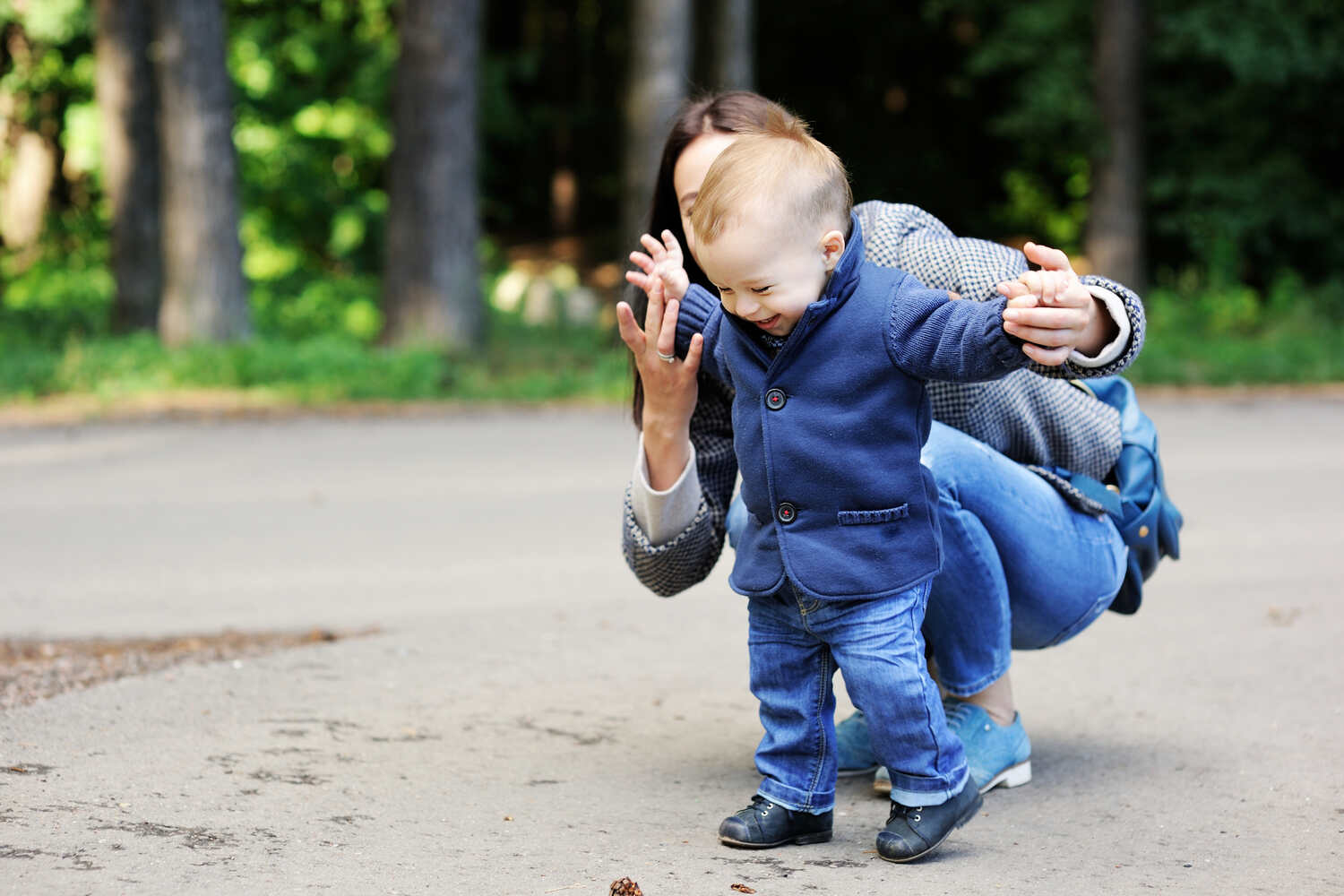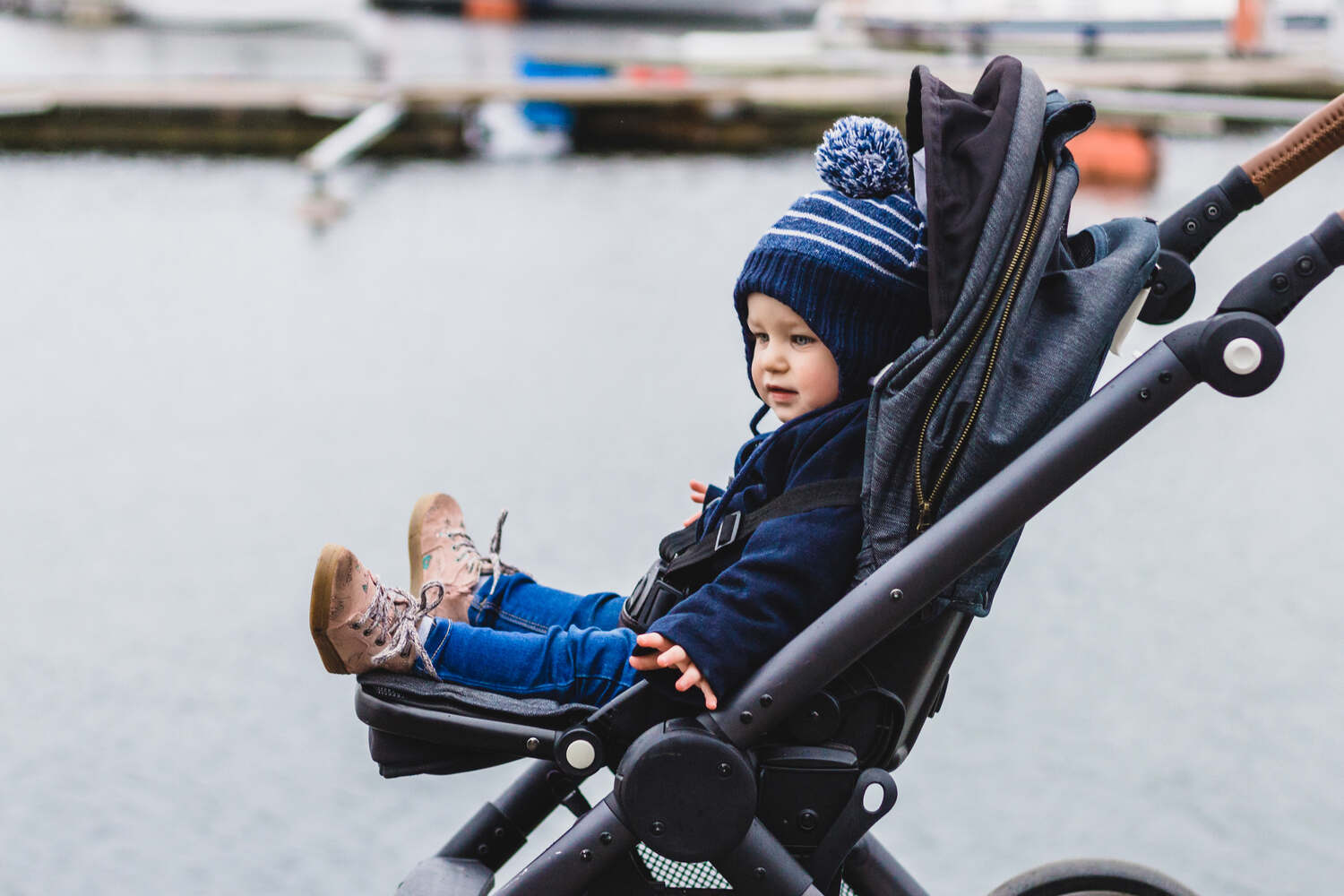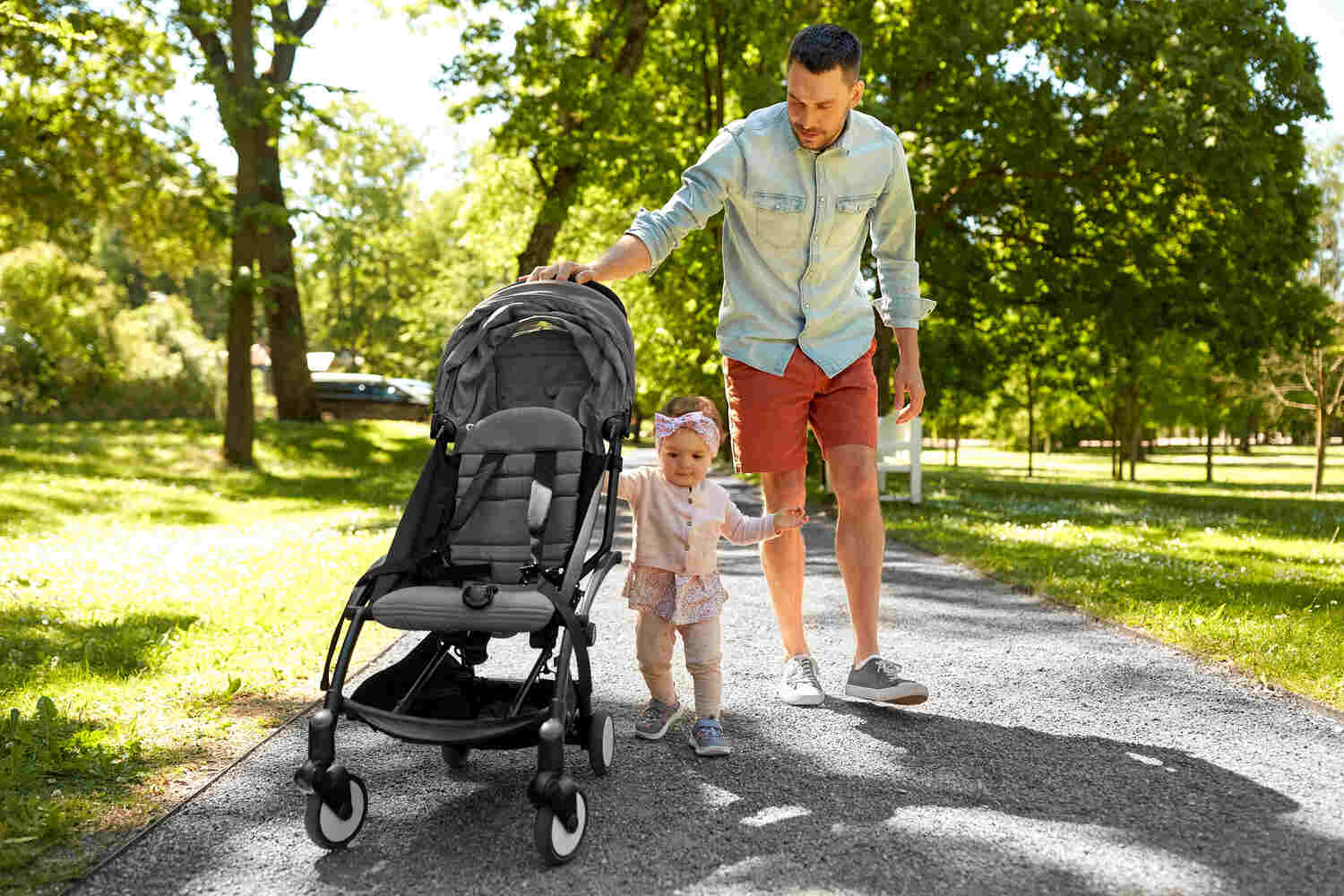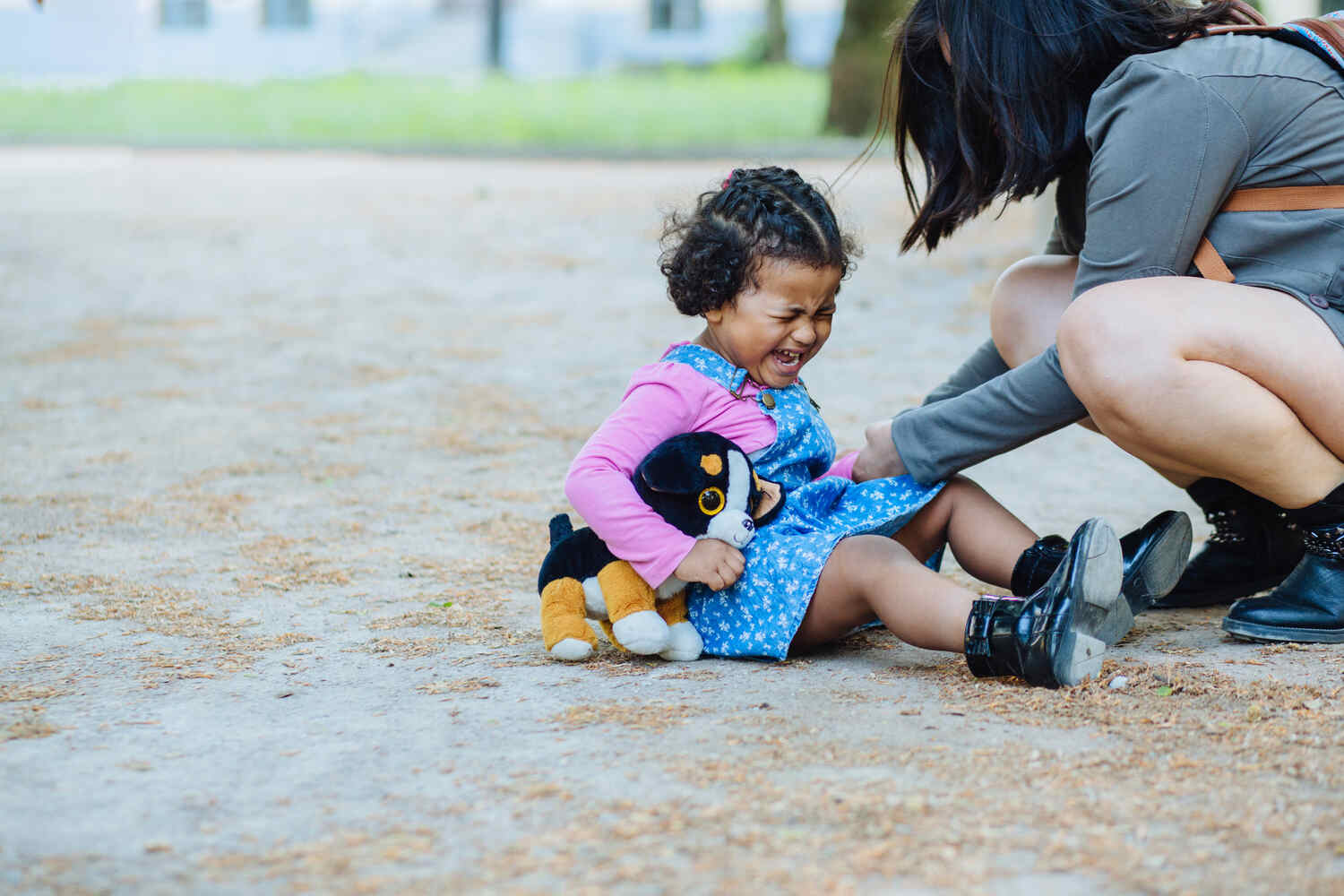
My Toddler Refuses To Walk. What Can I Do?
6 min readWritten by Sindhuja Prabhu


Walking independently is an important milestone for a toddler. Most toddlers take their first steps between the ages of 10 and 15 months. While some toddlers may be eager to walk and explore the big world on their own, despite multiple falls, some toddlers can just refuse to even plant their feet on the ground. If you are wondering, “My toddler refuses to walk—what can I do?”, well, you are not alone!
Once a toddler reaches their walking milestone, parents feel elated and start planning outdoor walks and activities with their little one. All plans can come crashing down when your toddler just refuses to walk and cries to be carried. It can be quite frustrating. Going back to the pram or baby carrier may seem like the best option, but what if we told you, there are other options too?
In This Article
Why Do Toddlers Refuse To Walk?

Once a toddler learns how to walk, most parents want to enjoy it. But the struggle starts when, all of a sudden, your toddler refuses to walk when you want them to. While you might think your toddler is just being lazy or defiant, this might not be true. Broadly, toddlers refuse to walk because:
1. They Want to be With You
Toddlers love to stay close to their primary caregivers. The emotional part of a toddler’s brain needs more time to develop. Until then, they may not trust others or form any attachment with people apart from their primary caregivers. When you carry them, they are close to you, away from a stranger’s reach, which makes them feel very secure and safe.
2. They Can’t Keep up With You
It is difficult to gauge a toddler’s pace. At one moment, they are running ahead and at the next moment, they are trailing behind. Most often, especially when you are outside with your toddler, they find it difficult to keep up with your pace. This could be a reason why they prefer being carried.
3. They Find it More Comforting
When you carry your toddler, it can feel warm, cozy, and safe for them. The physical closeness and pressure can be very comforting for toddlers, especially when they step out.
4. They Want Better View
Squat down to your toddler’s level and you will see that they have quite a limited view of the world. When you lift them up, their view expands! They also feel safer in your arms, while watching strange faces and passing cars.
5. Developmental Delay
In some rare cases, your toddler might be developmentally incapable of walking. If you suspect any physical reasons for their reluctance to walk, consult a doctor. If they refuse to plant their feet on the ground, cry hysterically or in pain when you try to make them stand or sit down after a few short steps, you need to talk to your pediatrician about it.
How Can You Encourage Your Toddler to Walk More Often?
Clearly, your toddler’s insistence on being carried around can be both frustrating and tiring. Frustrating, because you cannot do much when carrying a toddler around. Tiring, because, well, your toddler is bigger and heavier now! Here are a few tips you can try to encourage your toddler to walk-
1. Win Some, Lose Some

The first step is to break the “carrying around” pattern. If your toddler insists on being carried, tell them you will carry them till the next house. They have to walk for a short distance before you can carry them again. You can keep alternating between houses or roads until you reach your destination. You can even sing songs – carry for a song, walk for a song. Give in a little to win a little.
2. Pram to The Rescue

Sometimes, it can be tiring to carry them even for short distances, and you want to avoid dealing with tantrums. This is when prams come in handy. Your toddler is happy as they are getting a ride and you are happy as pushing the pram is much easier and more controllable than carrying your toddler around.
3. Make it a Game
Make walking enjoyable for your toddler. Have a walking race (“Let us see who reaches that tree first”). Sing a song and match your steps to the lyrics. Or pretend to be marching. If it is fun, your toddler may walk a little more.
4. Consistent Behavior

Ask other caregivers, like their nanny, maid, grandparents, or spouse, to refrain from carrying your toddler all the time. If everyone is ready to carry them, and only you are trying to make your toddler walk, it can become very challenging. The rules have to be consistent, or else your toddler will find it very confusing.
5. Ignore The Acting Out

If your child falls on the ground and howls in the middle of the supermarket, demanding to be carried, do not give in. The moment your child realizes that tantrums give them authority, they will go on an overdrive. Calmly sit down with them and explain that you are not going to entertain their behavior and there will be consequences (e.g. we are not going to get ice cream afterward).
6. Praise Your Child

Appreciate your toddler when they walk on their own. Especially if they walk longer than you expected from them. Appreciation can be positive reinforcement that toddlers require to put in that extra effort.
Different toddlers take different durations to meet their milestones. While walking is an important milestone, it’s okay if your toddler takes a little more time than others to start walking regularly. Just be patient and encouraging. Don’t panic unnecessarily. I hope these tips can help you. If you have other tips or suggestions that worked for you, do share them in the comments below. It can probably help a few other parents.
FAQ’s
1. What Age Is Late For a Child to Walk?
If a child has not started walking by the age of 18 months, it is considered delayed walking. However, every child develops at their own pace and may take some time to reach this milestone.
2. Do Autistic Babies Walk Late?
It is a popular belief that autistic babies walk late, however, recent studies show that babies with autism tend to meet their physical milestones on time (1a). Babies with low IQs showed a delay in walking but this was prevalent among both autistic and non-autistic babies (1b).
3. How Do I Motivate My Toddler To Walk?
Come up with interesting games or sing songs when you walk. Creative ways to retain their interest in walking can slowly encourage them to walk a little more each time.
4. How Do I Get My Stubborn Child To Walk?
First, rule out any physical or developmental delays by discussing your concerns with a doctor. Next, encourage your toddler gently rather than scolding them or physically making them walk. Some toddlers just need a little more time and encouragement to walk on their own.
5. When Should I Worry About My Son Not Walking?
If your son is close to 2 years old and shows no signs of walking, or if he stops walking after a few days or weeks, you should consult your doctor immediately. Any signs of delay or regression in such physical milestones can be a cause for worry.
6. Why Is It Difficult For Toddlers To Walk?
When you carry your toddler, they can feel safe, secure, and comfortable. To get down, and move away from that comfort and secure feeling can be scary for the little ones. Some toddlers can even experience pain or discomfort when they put weight on their legs. They may need a little more time for their limbs to develop fully and get stronger.
Reference
- Autism Spectrum Disorder, Intellectual Disability, and Delayed Walking – [https://www.ncbi.nlm.nih.gov/pmc/articles/PMC5098697/]

Sindhuja Prabhu,M.Sc (Psychology),PGDBM
Sindhuja, a mother of two, is an obsessive mom with a keen interest in psychology, especially child psychology. Her quest for knowledge and way with words led her to become a passionate content writer. She transformed her love for writing into a full-fledged career which incidentally also turned up being the perfect stress buster for the last 5 years.Read more.
Responses (0)
Want curated content sharply tailored for your exact stage of parenting?
Related articles

Top Healthy Indian Dinner Ideas For Toddler(12 to 24 Months)

Top 10 ICSE Schools in Mumbai for 2024 – 2025

Top 7 Exciting Gross Motor Activities For Toddlers

Bad Breath in Toddlers – Causes, Home Remedies and Tips to Deal With

Toddler First Aid Kit Essentials – Be Prepared For Emergencies

Top 5 Best Probiotic Rich Foods For Toddlers
Sponsored content
Discover great local businesses around you for your kids.
Get regular updates, great recommendations and other right stuff at the right time.





